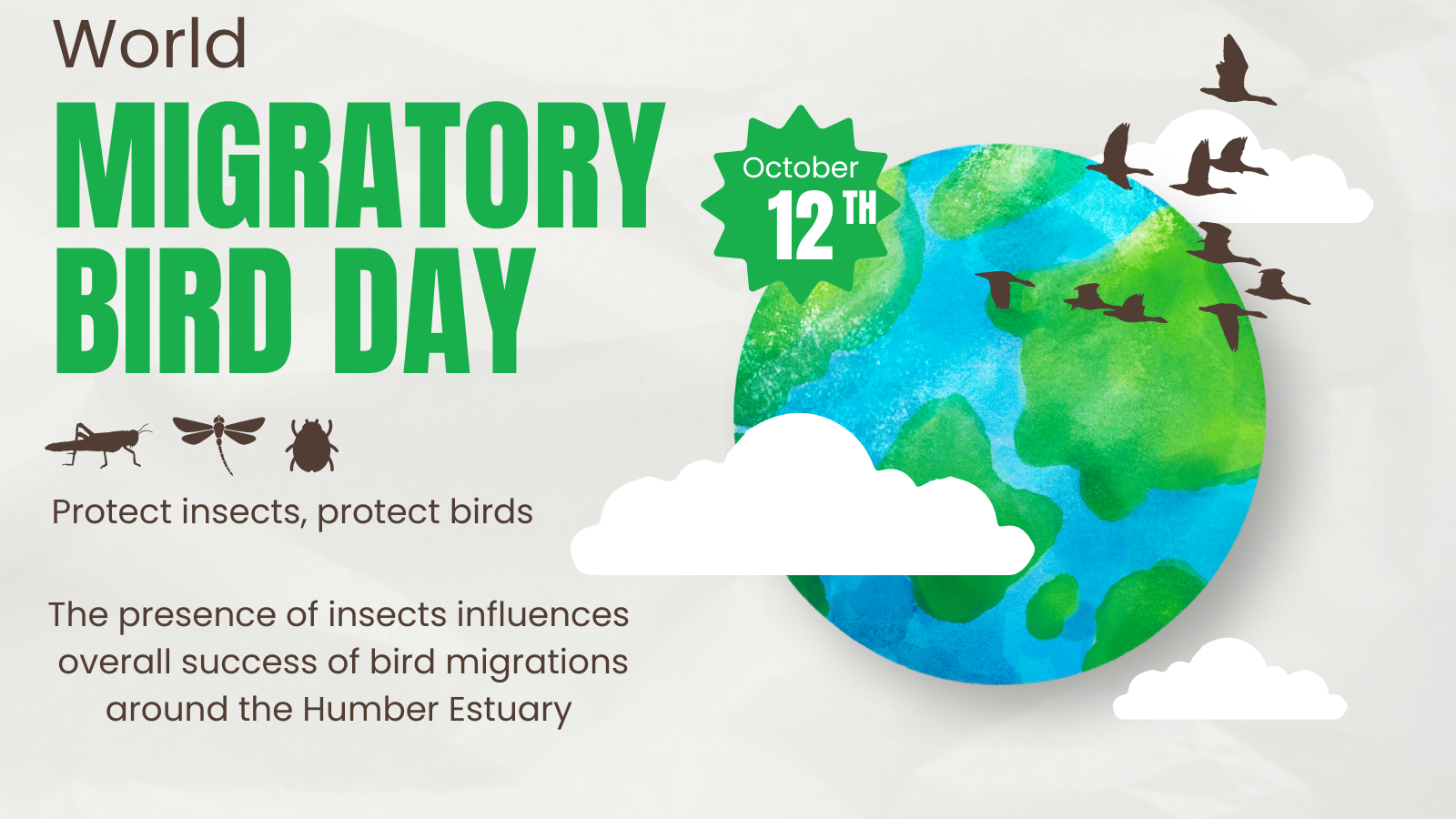12 Oct
World Migratory Bird Day 2024
Wildlife
Every year on the second Saturday of October, we join conservationists and environmentalists across the globe to celebrate winter World Migratory Bird Day (WMBD). This year's theme draws attention to declining insect populations, a vital food source for our migrating birds. The banks of the Humber Estuary provide one of the largest holiday homes for winter birds in the UK and a great stop off point to fill up on invertebrates for those travelling further south to mainland Europe and parts of Africa.
Globally, the insect population is declining for a number of reasons such as habitat loss and increased pesticide usage. This decline has been linked as a factor for the global decline of bird populations. Invertebrates are energy-dense food sources that not only provides protein for long migration, but also for raising chicks before they are able to fly.
But it's not all doom and gloom for our feathered friends. By protecting and maintaining existing wetland habitats and grassland, we can help protect insect populations and in turn protect bird species. For more information on how to get involved locally to protect birds, please visit the RSPB website here. For more information and about this year's WMBD and previous years, please visit the World Migratory Bird Day website here.



